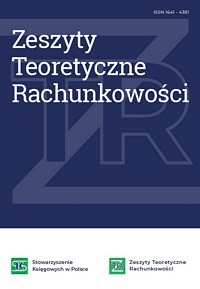Związek między przyjęciem MSSF a bezpośrednimi inwestycjami zagranicznymi w krajach Rady Współpracy Zatoki Perskiej
The relationship between IFRS adoption and foreign direct investments in Gulf Cooperation Council countries
Author(s): David Procházka, Sarah ChechadeSubject(s): Economy, Accounting - Business Administration
Published by: Stowarzyszenie Księgowych w Polsce
Keywords: IFRS adoption; foreign direct investment (FDI); GCC countries; emerging economies; co-integration
Summary/Abstract: Purpose: This paper investigates the relationship between International Financial Reporting Standards (IFRS) adoption and Foreign Direct Investments (FDI) inflows in a sample of Gulf Cooperation Council (GCC) countries, namely Kuwait, Qatar, UAE, and Saudi Arabia over the period standing between 1990 and 2020. Methodology/approach: This study implements a statistical analysis, starting with a panel correlation matrix and then a panel unit root test to identify the integrating properties of variables. The Pedroni panel co-integration approach tests co-integration among variables, and the instrumental Generalized Method of Moments (GMM) estima-tion technique identifies the relationship among variables and their significance. Findings: The results imply that only Gross Domestic Product (GDP) per capita, exchange rate and trade enhance FDI inflows in the studied countries. Contrary to our expectations, the IFRS was found to be insignificant on FDI along with economic control variables. Originality/value: Using multiple control variables, this study provides original empirical evidence and statistical analysis on the effect of IFRS adoption on FDI inflows in the GCC area.
Journal: Zeszyty Teoretyczne Rachunkowości
- Issue Year: 46/2022
- Issue No: 4
- Page Range: 9-26
- Page Count: 18
- Language: English

